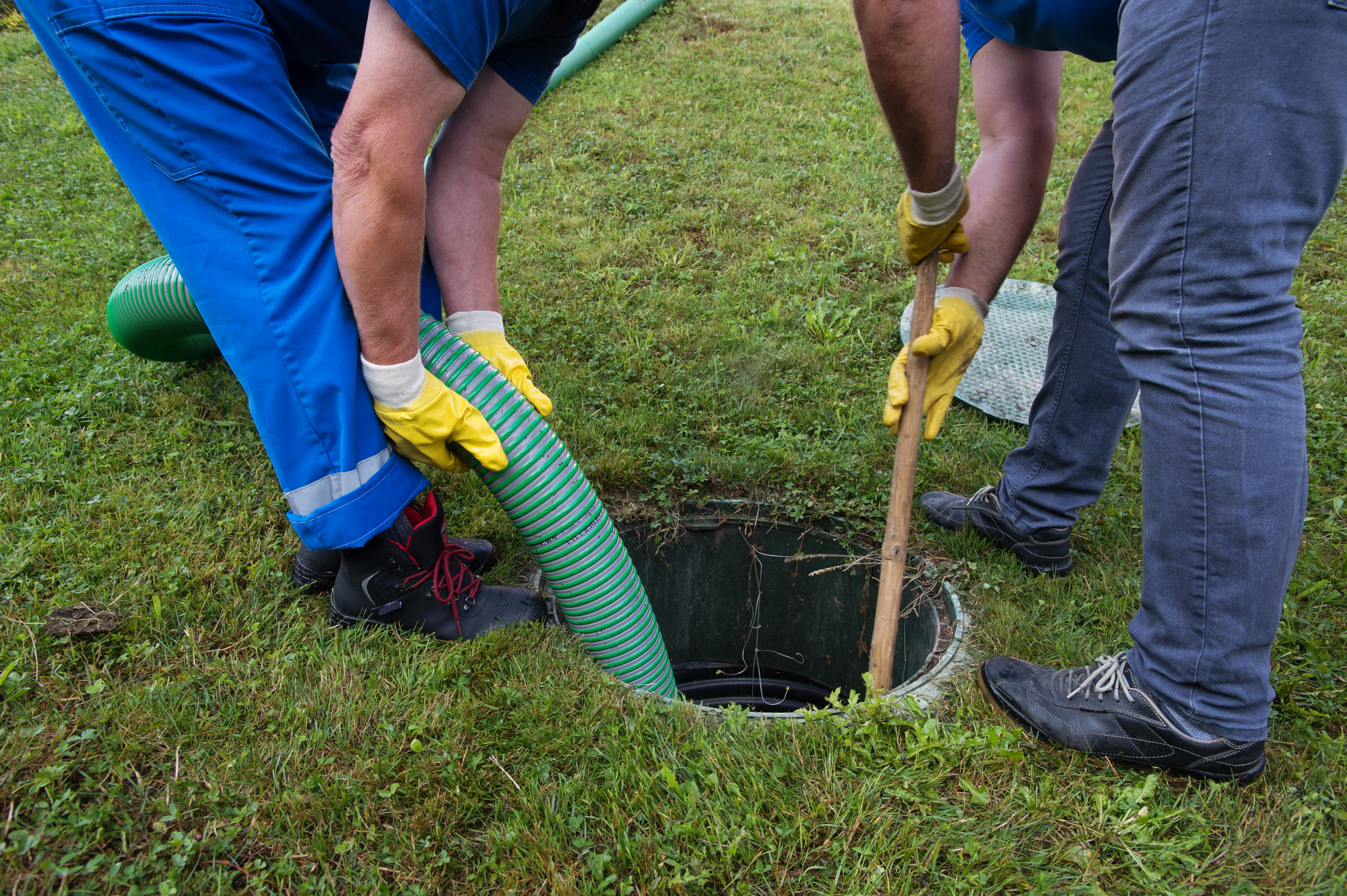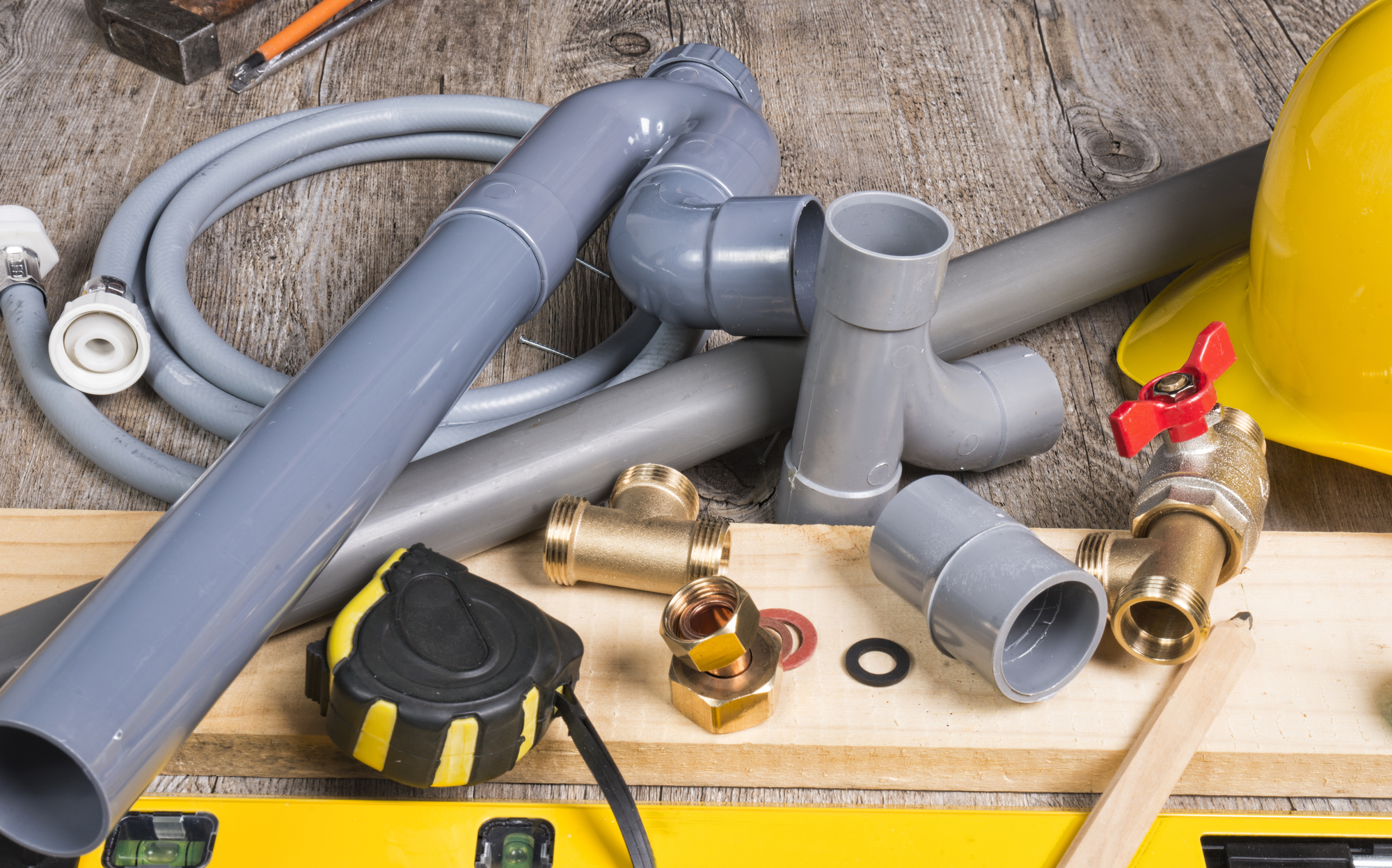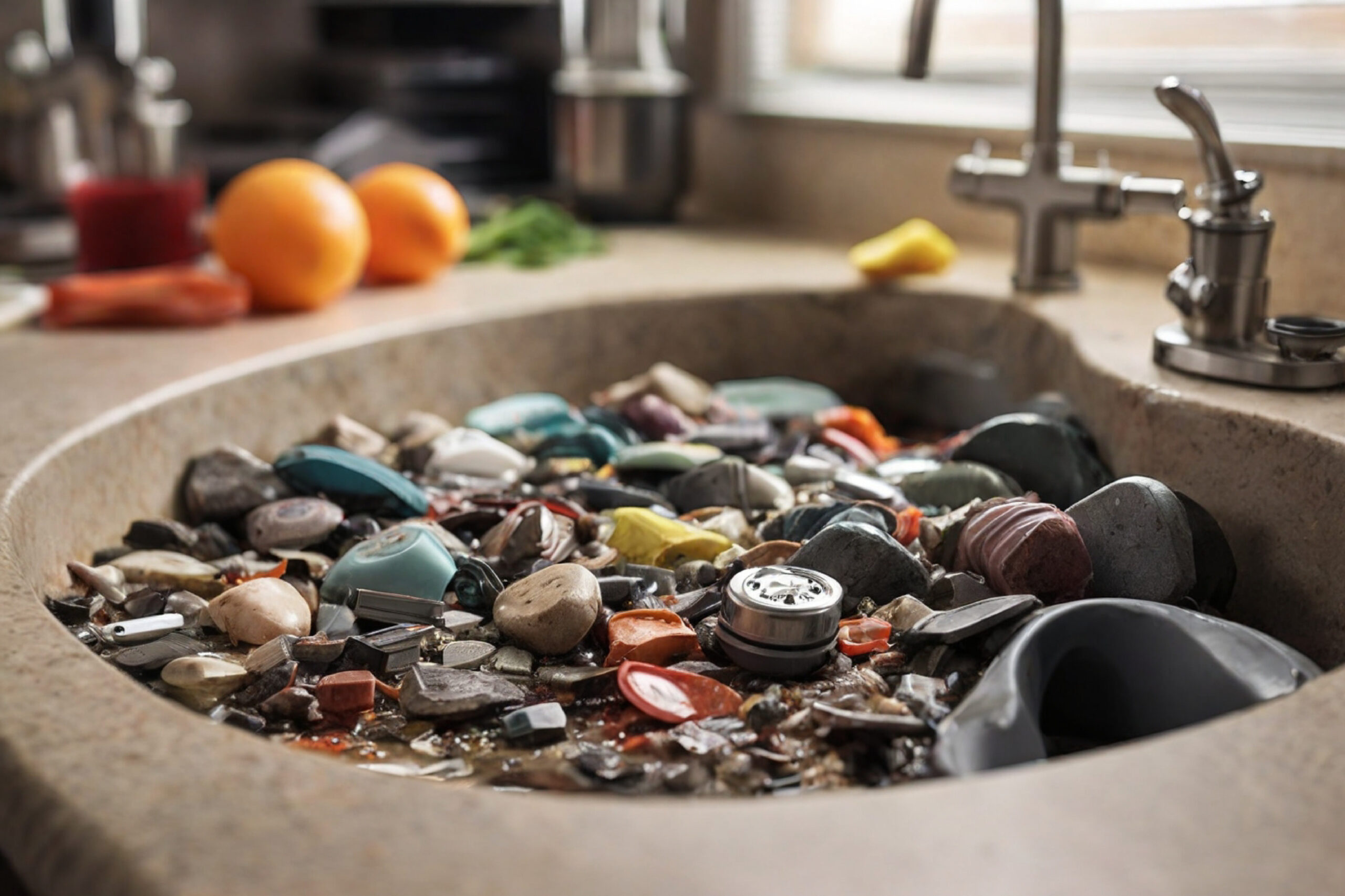Maintaining the functionality of your garbage disposal is crucial for smooth kitchen operations. Rocks accidentally finding their way into the disposal can cause significant damage. In this guide, we’ll walk you through the process of how to get rocks out of garbage disposal. We will talk about the safer removal of the rocks. As well as discuss prevention, maintenance, and proper disposal techniques.
What is A Garbage Disposal Units
Before we delve into the removal process, let’s take a moment to understand how garbage disposal units work. Typically installed beneath kitchen sinks. These units are ready to grind food waste into small particles. Preventing clogs in the plumbing system. They consist of a grinding chamber, impellers, and a motor that powers the grinding mechanism.
Does rock cause a clog to the garbage disposal unit?
Rocks can indeed cause clogs in garbage disposal units. While garbage disposal design helps them to grind up soft food waste. Similar to vegetable scraps or small bits of meat. Still, they may struggle to process hard objects like rocks. When rocks enter the disposal unit, they can get inside the grinding chamber. As well as showcase impedes the movement of the disposal’s blades.

Here’s how rocks can contribute to clogs in garbage disposals:
Blockage of Grinding Mechanism
Rocks are much harder than typical food waste, and when they enter the disposal, they may not break down as intended. Instead, they get stuck in the grinding mechanism, preventing it from operating smoothly.
Reduction in Water Flow
Rocks lodged in the disposal can impede the flow of water through the unit. Reduced water flow can hinder the disposal’s ability to flush out ground-up food waste, leading to buildup and potential clogs.
Obstruction of Drainage Pipes
If rocks manage to pass through the disposal not always they will get stuck. But if they are too large to flow freely through the drainage pipes they will get stuck. They can become stuck further down the line, contributing to a clog in the plumbing system.

How to get rocks out of garbage disposal
Now that you have enough knowledge about how much damage rock can cause. It’s time we go for the solution and bring the tremble out before it goes for a rampage.
So, we need the right process on how to get rocks out of garbage disposal:
Power Off
Before you begin any work on your garbage disposal, it’s essential to cut off the power supply. Locate the circuit breaker or switch controlling the disposal unit and switch it off to prevent accidents.
Visual Inspection
Turn on your flashlight, and carefully inspect the disposal chamber. Identify the rocks’ location without inserting your hands into the unit. Safety is paramount.
Extraction
Using long-handled tongs or pliers, delicately remove the rocks from the disposal chamber. Take care to grip them firmly and extract them slowly to avoid causing damage to the disposal’s components.
Flush with Water
Once the rocks are clear, run cold water through the disposal unit for several minutes. This helps flush out any lingering debris and ensures the disposal is clean and obstruction-free.
Disposal Techniques
Once the rocks or other objects from your garbage disposal are no more. Proper disposal techniques are essential to ensure environmental responsibility and safety.
Here’s how to dispose of materials effectively:
Household Trash or Recycling Bin
Discard extracted rocks in your household trash or recycling bin, depending on their composition and size. Be mindful of local recycling guidelines and regulations.
Composting Organic Waste
Consider composting organic materials such as fruit and vegetable scraps instead of using the garbage disposal. Composting is an eco-friendly way to reduce waste and create nutrient-rich soil for gardening.
How to Identify if a Garbage Disposal Has Rocks in Its System
Identifying whether rocks have found their way into your garbage disposal system is essential for addressing potential issues before they escalate.
Here are some comprehensive methods to determine if your garbage disposal contains rocks:
Unusual Noise
Rocks stuck in the disposal can cause grinding or scraping noises when the unit is in operation. If you notice any unusual sounds emanating from the disposal during use, it could indicate the presence of rocks.
Reduced Performance
Rocks obstructing the disposal mechanism may lead to lower performance. If you observe that the disposal is struggling to grind food waste or if water drains slowly from the sink. It could be a sign of a blockage that your rocks may cause.
Visible Debris
Take a visual inspection of the disposal chamber to check for any visible rocks or debris. Shine a flashlight into the disposal and look for any foreign objects. This will enable you to find debris in your system.
Impact of Rocks Getting Stuck on A Garbage Disposal Unit
When rocks or other hard objects become stuck in the garbage disposal. They can have far-reaching consequences for the appliance’s functionality and your kitchen’s plumbing system.
Here’s a comprehensive look at the impact of rocks getting stuck:
Blade Damage
Rocks can dull or damage the disposal blades. Reducing their effectiveness in grinding food waste and potentially leading to costly repairs or replacements.
Motor Strain
The motor of the disposal may experience strain as it attempts to grind against the resistance of the rocks. This strain can result in overheating, motor burnout, or premature failure.
Clog Formation
Rocks stuck in the disposal’s grinding chamber can affect the flow of water. As well as the food waste, leading to clogs in the plumbing system. These clogs can cause backups, foul odors, and even water damage to your kitchen.
Leakage
Excessive strain on the disposal caused by stuck rocks can weaken the unit’s seals and connections, leading to leaks or cracks. This leakage can result in water damage to surrounding areas and necessitate costly repairs.
By being vigilant for signs of rocks in your garbage disposal system. While figuring out the potential impacts of rocks getting stuck. You can take proactive measures to address issues promptly and minimize damage. Regular maintenance and careful disposal practices are key to preventing rock-related problems. Which will ensure the longevity of your garbage disposal unit.
Common Mistakes to Avoid for A Garbage Disposal Unit
When it comes to dealing with garbage disposal issues. Avoiding common mistakes is crucial for preventing accidents and maintaining the appliance’s functionality. Here are some details on what you should avoid:
Operating the Disposal While Power is On
One of the most dangerous mistakes homeowners make is to remove objects. It’s not anyway safe to remove objects or dispose while it’s still on. Always ensure the power is switched off before performing any maintenance or extraction tasks.
Using Bare Hands
Never reach into the disposal chamber with your bare hands to retrieve objects. Even if the power is off, there may still be sharp blades or other hazards inside. Always use appropriate tools such as tongs or pliers.
Overloading the Disposal
Avoid putting too much food waste into the disposal at once, as this can overwhelm the system and lead to clogs or damage. Dispose of food waste gradually, allowing the disposal to process it efficiently.
Using Chemical Drain Cleaners
Chemical drain cleaners may seem like a quick fix for clogs, but they can cause more harm than good. These harsh chemicals can damage the disposal unit and may also harm the environment. Opt for safer alternatives such as enzymatic cleaners or mechanical methods.
Prevention and Maintenance Tips For Garbage Disposal Unit
Proactive maintenance and preventive measures are key to keeping your garbage disposal in optimal condition. Here are some comprehensive tips to help you maintain your disposal:
Mindful Disposal Practices
Avoid putting large or hard items like rocks, bones, or fruit pits into the garbage disposal. Stick to disposing of soft food waste and small scraps that can be easily broken down.
Regular Cleaning Routine
Incorporate regular cleaning into your kitchen maintenance routine by running cold water and a small amount of dish soap through the disposal. This helps remove grease and food particles, preventing odors and buildup.
Blade Maintenance
Keep the disposal blades sharp and fresh by periodically grinding ice cubes and citrus peels. The ice helps to sharpen the blades, while the citrus peels leave behind a fresh scent.
Avoiding Grease Buildup
Never pour grease or fat down the disposal, as they can solidify and cause clogs over time. Instead, dispose of grease in a separate container and discard it in the trash once it solidifies.
FAQ
- Can I safely remove rocks from my garbage disposal?
- Yes, but ensure the power is off first. Use tongs or pliers to carefully extract rocks, avoiding damage to the disposal.
- What if I can’t reach the rocks with tools?
- Try using a vacuum with a nozzle attachment to suction out the rocks or flushing them out with water.
- Can rocks damage the garbage disposal?
- Absolutely. Rocks can cause serious damage to the disposal blades and motor. Remove them promptly to avoid costly repairs.
- Is it safe to use chemicals to dissolve the rocks?
- No, using chemicals is not recommended. They may damage the disposal and pose safety hazards.
- How can I prevent rocks from entering the garbage disposal?
- Be mindful of what goes down the drain. Use a drain strainer to catch solid particles and prevent damage to the disposal.
Conclusion,
By following this comprehensive guide on how to get rocks out of garbage disposal. You can avoid common mistakes, by implementing preventive measures and adopting proper disposal techniques. This will help you ensure the longevity and optimal performance of your garbage disposal unit. As well as minimize environmental impact. Remember, proactive maintenance is key to preventing costly repairs and ensuring smoother functionality.






